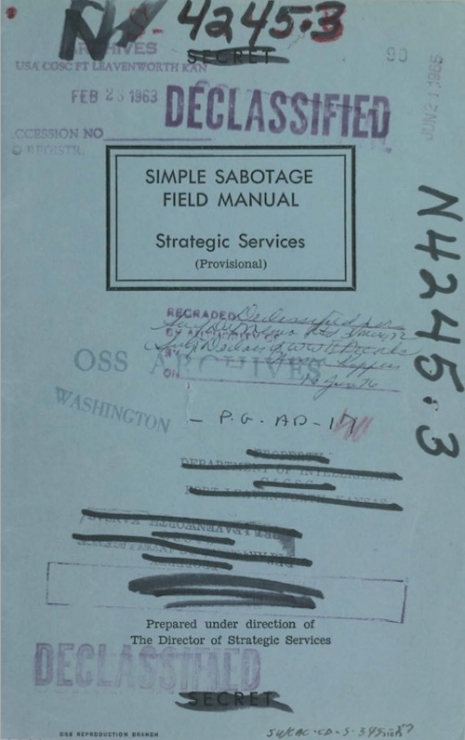
That annoying doofus in your office who irritates the shit out of you might not be as dumb as he looks. He could be working for the enemy. He could be a saboteur.
During the Second World War, the Office of Strategic Services (forerunner to the CIA) issued a field manual called Simple Sabotage intended for use by resistance fighters operating behind enemy lines. The 32-page booklet gave practical advice on how to perpetrate sabotage by “purposeful stupidity.” This ranged from working slowly, using the wrong tools, slashing tires, losing important mail, misfiling information, spreading false rumors, damaging technical equipment and arson.
Sabotage varies from highly technical coup de main acts that require detailed planning and the use of specially-trained operatives, to innumerable simple acts which the ordinary individual citizen-saboteur can perform. This paper is primarily concerned with the latter type. Simple sabotage does not require specially prepared tools or equipment; it is executed by an ordinary citizen who may or may not act individually and without the necessity for active connection with an organized group; and it is carried out in such a way as to involve a minimum danger of injury, detection, and reprisal.
Where destruction is involved, the weapons of the citizen-saboteur are salt, nails, candles, pebbles, thread, or any other materials he might normally be expected to possess as a householder or as a worker in his particular occupation. His arsenal is the kitchen shelf, the trash pile, his own usual kit of tools and supplies. The targets of his sabotage are usually objects to which he has normal and inconspicuous access in everyday life.
A second type of simple sabotage requires no destructive tools whatsoever and produces physical damage, if any, by highly indirect means. It is based on universal opportunities to make faulty decisions, to adopt a noncooperative attitude, and to induce others to follow suit. Making a faulty decision may be simply a matter of placing tools in one spot instead of another. A non-cooperative attitude may involve nothing more than creating an unpleasant situation among one’s fellow workers, engaging in bickerings, or displaying surliness and stupidity.
This type of activity, sometimes referred to as the “human element,” is frequently responsible for accidents, delays, and general obstruction even under normal conditions. The potential saboteur should discover what types of faulty decisions and the operations are normally found in this kind of work and should then devise his sabotage so as to enlarge that “margin for error.”
The manual offered five top tips to “simple sabotage”:
Managers and Supervisors: To lower morale and production, be pleasant to inefficient workers; give them undeserved promotions. Discriminate against efficient workers; complain unjustly about their work.
Employees: Work slowly. Think of ways to increase the number of movements needed to do your job: use a light hammer instead of a heavy one; try to make a small wrench do instead of a big one.
Organizations and Conferences: When possible, refer all matters to committees, for “further study and consideration.” Attempt to make the committees as large and bureaucratic as possible. Hold conferences when there is more critical work to be done.
Telephone: At office, hotel and local telephone switchboards, delay putting calls through, give out wrong numbers, cut people off “accidentally,” or forget to disconnect them so that the line cannot be used again.
Transportation: Make train travel as inconvenient as possible for enemy personnel. Issue two tickets for the same seat on a train in order to set up an “interesting” argument.
This is all fascinating stuff. Among the tactics listed for those working in “organizations and production” are eight points which are appear to be still in use today:
(1) Insist on doing everything through “channels.” Never permit short-cuts to be taken in order to expedite decisions.
(2) Make “speeches.” Talk as frequently as possible and at great length. Illustrate your “points” by long anecdotes and accounts of personal experiences. Never hesitate to make a few appropriate “patriotic” comments.
(3) When possible, refer all matters to committees, for “further study and consideration.” Attempt to make the committees as large as possible — never less than five.
(4) Bring up irrelevant issues as frequently as possible.
(5) Haggle over precise wordings of communications, minutes, resolutions.
(6) Refer back to matters decided upon at the last meeting and attempt to re-open the question of the advisability of that decision.
(7) Advocate “caution.” Be “reasonable” and urge your fellow-conferees to be “reasonable” and avoid haste which might result in embarrassments or difficulties later on.
(8) Be worried about the propriety of any decision — raise the question of whether such action as is contemplated lies within the jurisdiction of the group or whether it might conflict with the policy of some higher echelon.
Sounds uncannily like life in the modern workplace…. Last year, a trio updated the OSS manual to one which detected and rooted out simple sabotage in the workplace.
Simple Sabotage was declassified by the CIA in 2008. The whole document can be read below—click on image to view larger size.
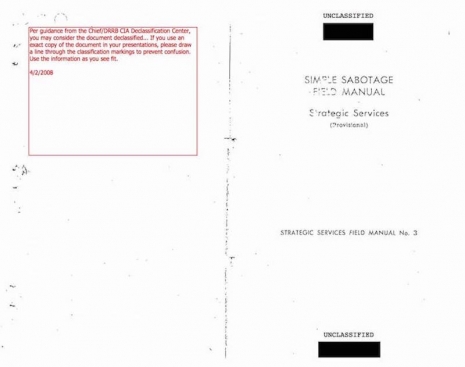
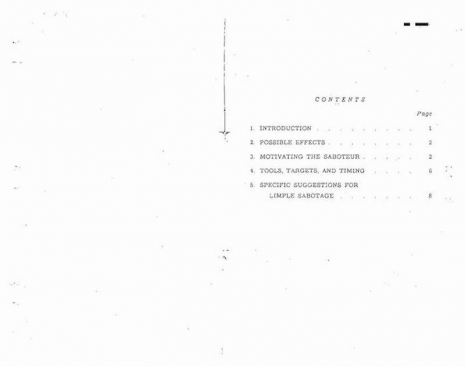
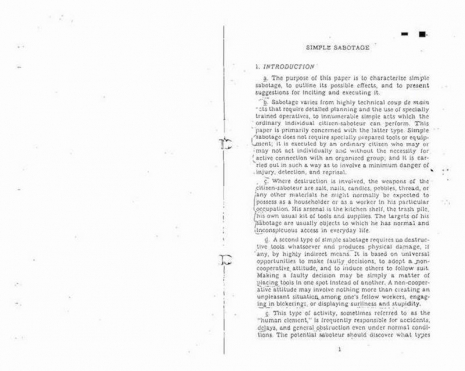
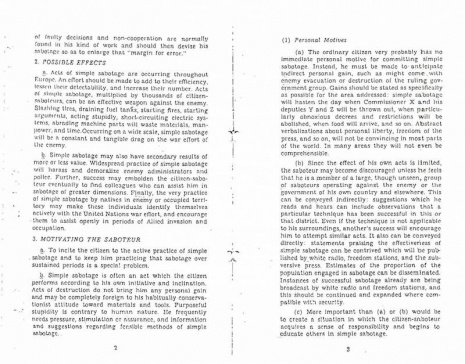
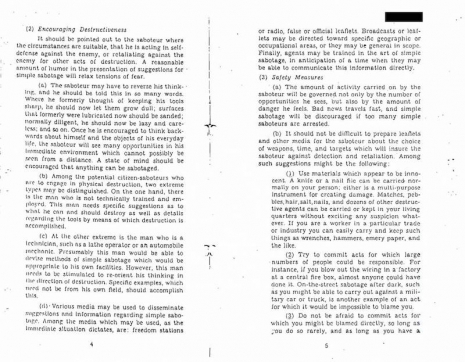
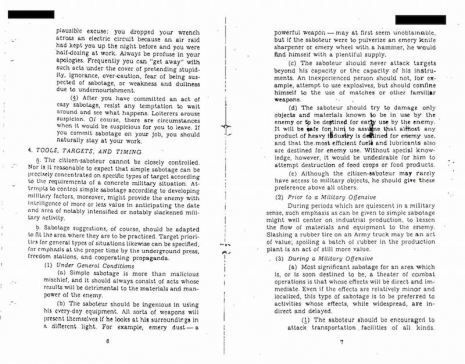
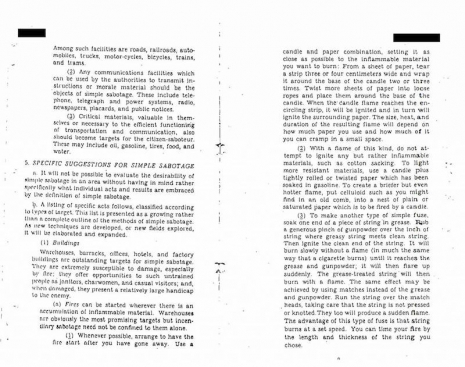
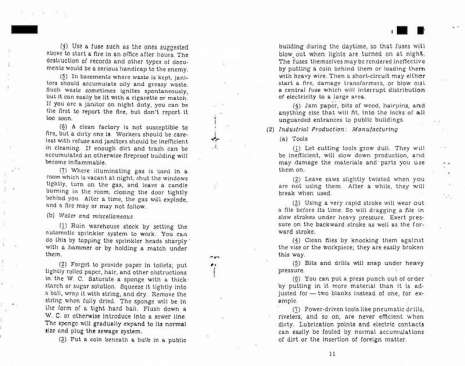
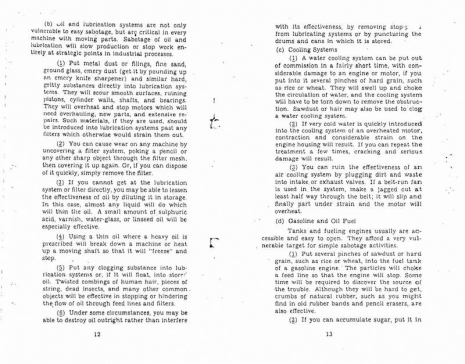
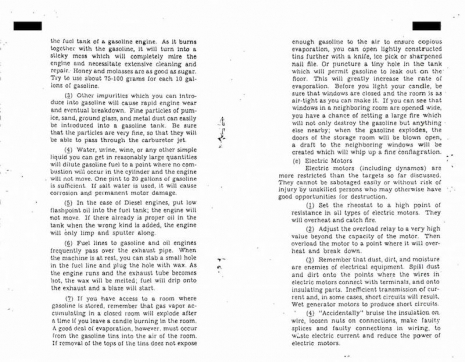
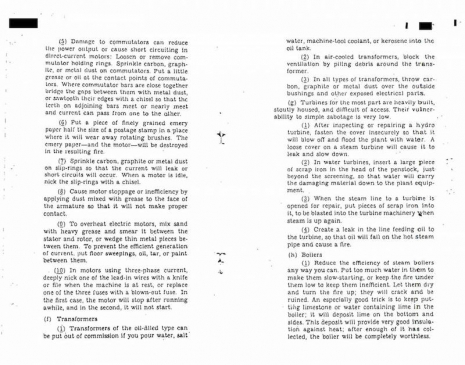
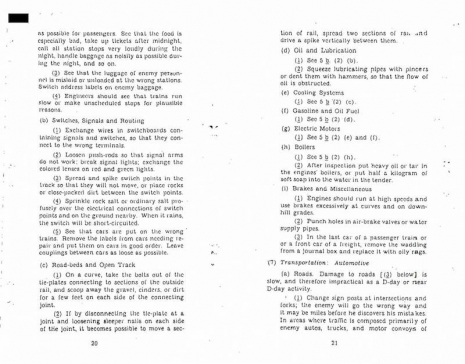
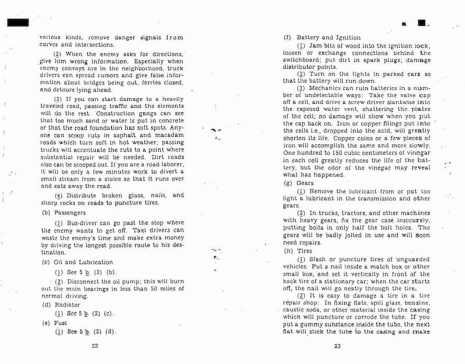
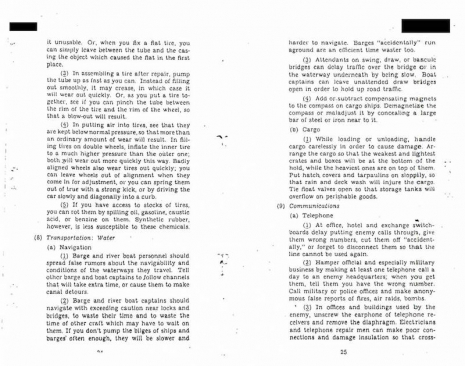
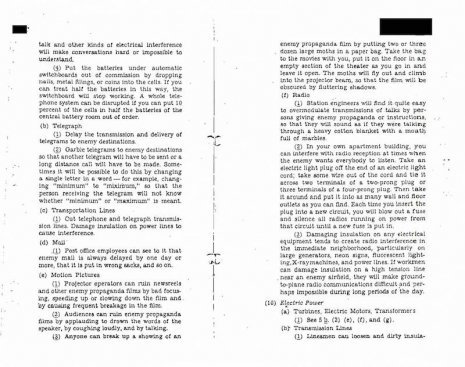
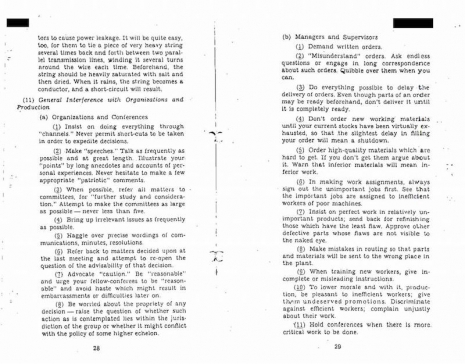
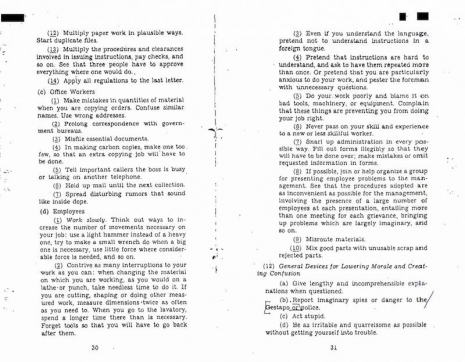
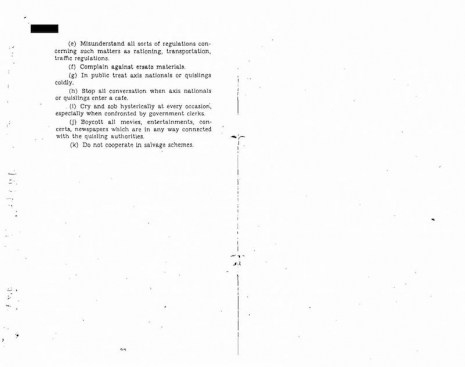
Via Flashbak.